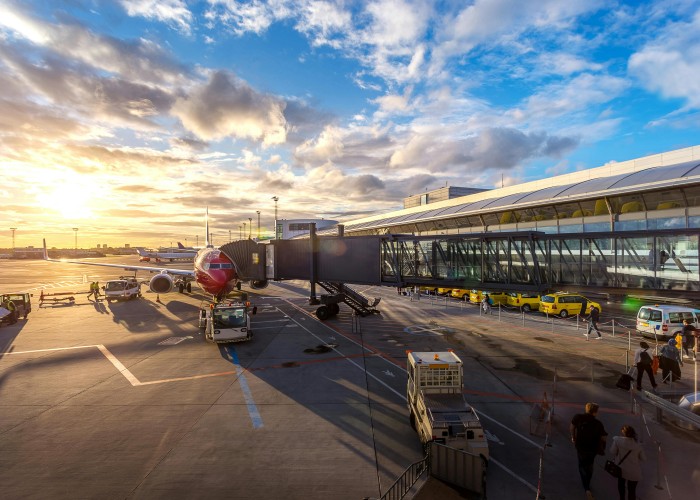Travel is a powerful way to broaden your horizons—and when done mindfully, it can also make a real difference to the people and places you visit. Here’s your guide to supporting local businesses while traveling, offering practical and inspiring steps that elevate your experience and leave a positive impact. How to Support Local Businesses While Traveling.
1. Dine at Local Restaurants, Not Global Chains
One of the simplest ways to support local economies is choosing meals from family‑run cafés, street food stalls, and neighborhood eateries instead of international chains. These off‑the‑beaten‑path spots not only offer authentic cuisine and flavors, but your spending stays within the community. Local restaurants often source ingredients from nearby farms, support local suppliers, and employ residents directly
2. Stay in Independent, Locally Owned Places
Rather than booking large hotel chains, opt for guesthouses, boutique hotels, homestays, or family‑run lodges. These accommodations offer a personal touch, unique stories, and insider tips. Your money supports local owners, staff, and surrounding small businesses—and you get a richer, more authentic travel experienceGood Tourism InstituteEco-Friendly Travel.
3. Shop at Artisan Markets and Independent Stores
Avoid shopping malls and branded souvenir shops. Instead, visit local markets, craft fairs, and independent stores to buy handmade products—textiles, pottery, jewelry, art, spices—that reflect the destination’s culture. Every purchase supports artisans directly and keeps profits in the communitySustainable Travel TripsGeoGuide.
4. Book Tours with Local Guides
When exploring a new place, seek out local tour guides and operators rather than large, international tour companies. Local guides share stories rooted in local culture and history and offer insider access to hidden gems. Hiring them ensures your spending supports local livelihoods and authentic storytellingloveonn.com.
5. Use Local Transportation
Rely on local transportation, such as city buses, trams, local taxis, bike‑sharing systems, or even walking. Not only is this more eco‑friendly, but local drivers and transit providers benefit directly from your fare. Plus, it gives you a more immersive feel of everyday life in the areaTravel PugStorylines.
6. Attend Community Events and Festivals
Plan your visit around local markets, cultural festivals, music performances, or community gatherings. These events are often organized by local vendors and performers. Your attendance or purchases directly support local creators, musicians, and vendors, while enriching your travel memoriesTravel PugStorylines.
7. Join Local Workshops and Classes
Participating in cooking classes, workshops, art sessions, or craft demonstrations led by local instructors is a fun and meaningful way to support small businesses. You learn skills rooted in local tradition and contribute financially to artisans, educators, and small‑scale projectsTravel PugEcobnb. How to Support Local Businesses While Traveling.
8. Shop Conscious and Ethical Souvenirs
When choosing mementos, prefer ethically sourced, locally produced goods. Avoid souvenirs mass‑produced elsewhere and sold as local. Choose items made by local artisans at markets or community fairs. Knowing the story behind your purchase enriches the experience and fosters fair compensationPostcards from Candy.
9. Tip Thoughtfully and Leave Reviews
Tipping respectfully at small restaurants or for local guides is a powerful way to boost incomes in destinations where gratuities matter. After your trip, leaving honest reviews on platforms like Google Maps, TripAdvisor, or social media gives visibility to businesses that may not have marketing budgets. It helps potential future visitors and encourages other travelers to visitGeoGuideFeeding TrendsRedditReddit.
10. Give Back Beyond Spending
If you want to contribute more than purchases, consider supporting community projects, charities, or conservation efforts working locally. Some volunteer schemes or educational projects welcome travelers to share skills, donate items, or help with local initiatives. Practices like donating time, materials, or expertise can be as valuable as moneyGood Tourism InstituteStorylines.
11. Learn and Respect Local Culture
Supporting local communities also means being culturally sensitive and aware. Before you go, familiarise yourself with local customs, greetings, dress codes, and etiquette. Visit religious or heritage sites respectfully, ask before photographing people, and pay close attention to cultural norms. This respectful attitude fosters positive interaction and deeper connectionsEcobnbTripSided.
12. Pack Light and Donate When You Go
If you’ve used gear, clothes, trekking equipment, or other items that you no longer need, consider donating them at the end of your trip. Local NGOs or community organisations often appreciate well‑used gear or supplies that can be reused rather than taken back home. It’s a sustainable way to lighten your load and help locals. How to Support Local Businesses While Traveling.
Why Supporting Local Businesses Matters
Economic Benefits
Local businesses keep money circulating within communities. Compared to international chains, far more of every rupee stays in the local economy—creating jobs, supporting suppliers, and sustaining micro‑enterprises. Travel spending becomes a force for positive change.
Cultural Preservation
By supporting local artisans, traditional cuisine, and locally run tours, you help preserve cultural heritage. Craftsmanship, storytelling, local food traditions, and festivals flourish when locals benefit directly. You witness the destination as it truly is—rooted in culture.
Environmental Responsibility
When you eat local food, shop nearby, use the local currency, and reduce long supply chains—travel becomes more sustainable. Local sourcing typically reduces carbon emissions and packaging waste. Choosing walking tours or public transit rather than rental cars also helps minimize impact.
Authentic Travel Experience
Local experiences offer more personal, meaningful travel than typical tourist trails. You interact with people, learn stories, taste cuisine made by families, take home handmade souvenirs, and enjoy guided tours with genuine local passion. Travel becomes memorable beyond the usual landmark checklist.
Applying These Ideas to Europe and Switzerland Travel
Your journey through Switzerland or other European destinations can be richer and more culture‑driven by applying these principles. While booking through your switzerland tour package blog or travel resource, encourage readers to:
- Choose Swiss‑run B&Bs, guesthouses or chalets instead of large hotel chains.
- Try local Swiss cuisine—from raclette and fondue houses to farmers’ markets in Zurich, Geneva, or Bern.
- Shop for handwoven textiles, Swiss chocolate from family producers, or enamelled crafts directly from artisans.
- Book locally based walking tours or nature guides in the Alps or Geneva city tours.
- Use Swiss rail passes, local buses, or bike‑sharing systems rather than international travel providers.
- Attend community markets or festivals—like summer village fairs, mountain festivals, or local produce markets.
- Join Swiss cooking or cheese‑making workshops hosted by local families.
By emphasizing these practices on https://switzerlandtourpackage.com/blog/ and weaving them into your content, you create value for readers and elevate your blog’s uniqueness. Instead of just listing switzerland travel packages, swiss tour packages, package trip to switzerland, or vacation packages to switzerland, you help people travel more consciously and responsibly.
Tips for Writing Ads‑Friendly Content for Google AdSense
- Ensure fully original content, avoiding rewriting other guides. Add personal voice, unique examples, and storytelling.
- Provide substantial value—practical actions, step‑by‑step tips, and real reasons for readers to stay.
- Use relevant keywords naturally—integrate terms like switzerland tour package, switzerland holiday package, swiss trip package, trip to switzerland cost in headings or text, but avoid keyword stuffing.
- Maintain appropriate length (about 1,500 words) with varied paragraphs and good readability.
- Include internal links to your site:
- Home page of Switzerland Tour Package
- Blog section
- About page
Make sure these integrate naturally within the content.
- Avoid repetitive sentences or filler. Keep the tone human, friendly, conversational.
Example Integration of Your Keywords & Links
When mentioning packages, you can craft sentences like:
If you’re planning a switzerland tour package focused on local culture, consider adding a day in a village with a community‑run market. A switzerland holiday package that includes a cooking experience with local hosts brings real depth to your travel.
On your swiss holidays packages blog, we showcase how to combine scenic highlights with artisan visits and local cuisine.
Even when thinking about trip to switzerland cost, remember spending on local food or tours supports real people—not corporations.
And insert internal links where it makes sense:
Visit our blog section on Switzerland Tour Package for more ideas about how to plan switzerland europe tour itineraries that prioritize local experiences.
Learn more about who we are at our About page, and explore how we approach travel content differently.
Final Thoughts
Supporting local businesses while traveling isn’t just about spending—it’s about connection, respect, and positive impact. When you choose small restaurants, local guides, independent accommodations, artisans and sustainable transportation, you boost local power, preserve culture, and enjoy richer travel. Your journey becomes a force for good and a story worth sharing. How to Support Local Businesses While Traveling.
![How to Support Local Businesses While Traveling [2026]](https://switzerlandtourpackage.com/wp-content/uploads/2025/08/pexels-abhisek-tripathy-467053315-32771202-1.jpg)





Leave a Reply